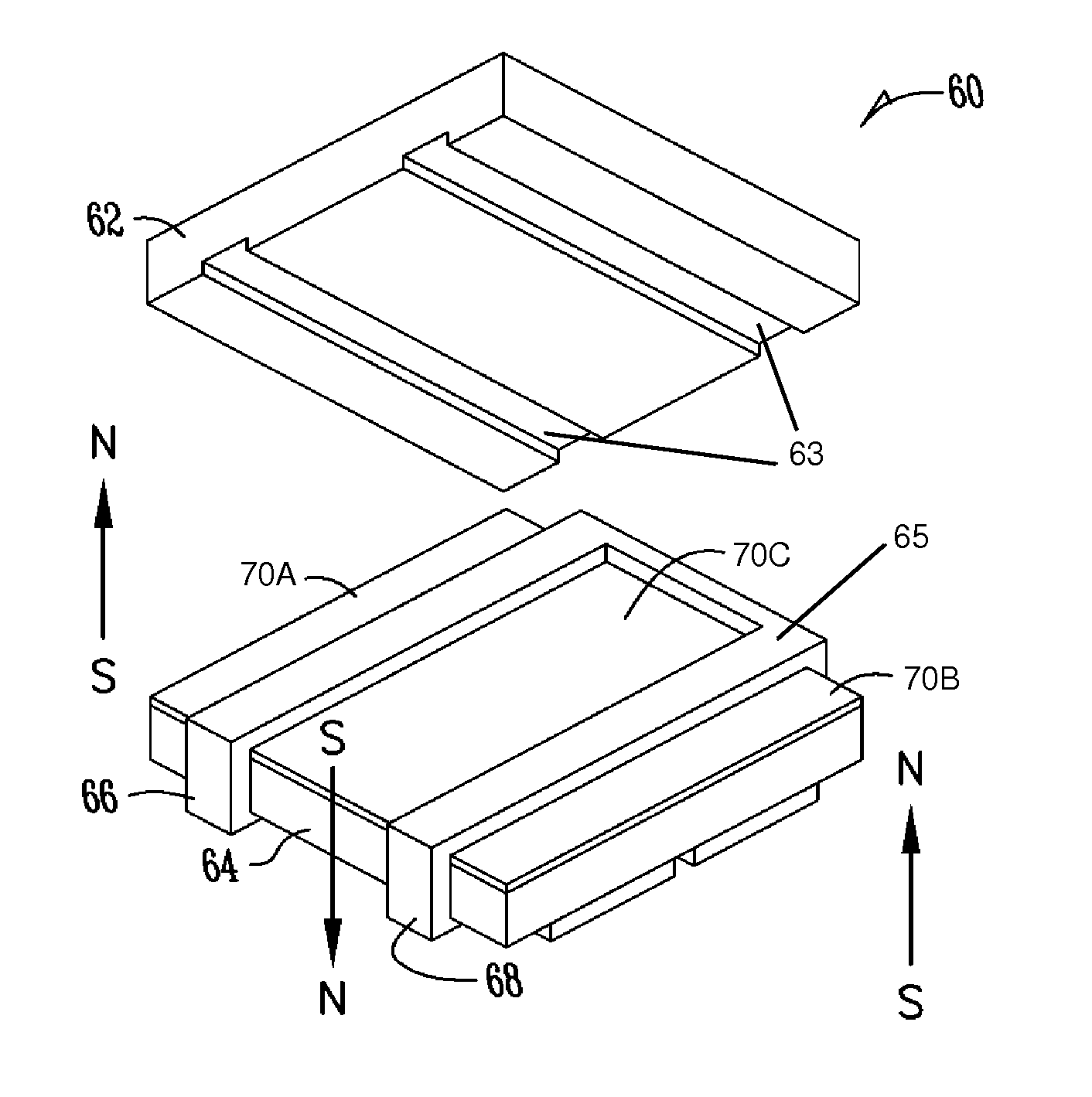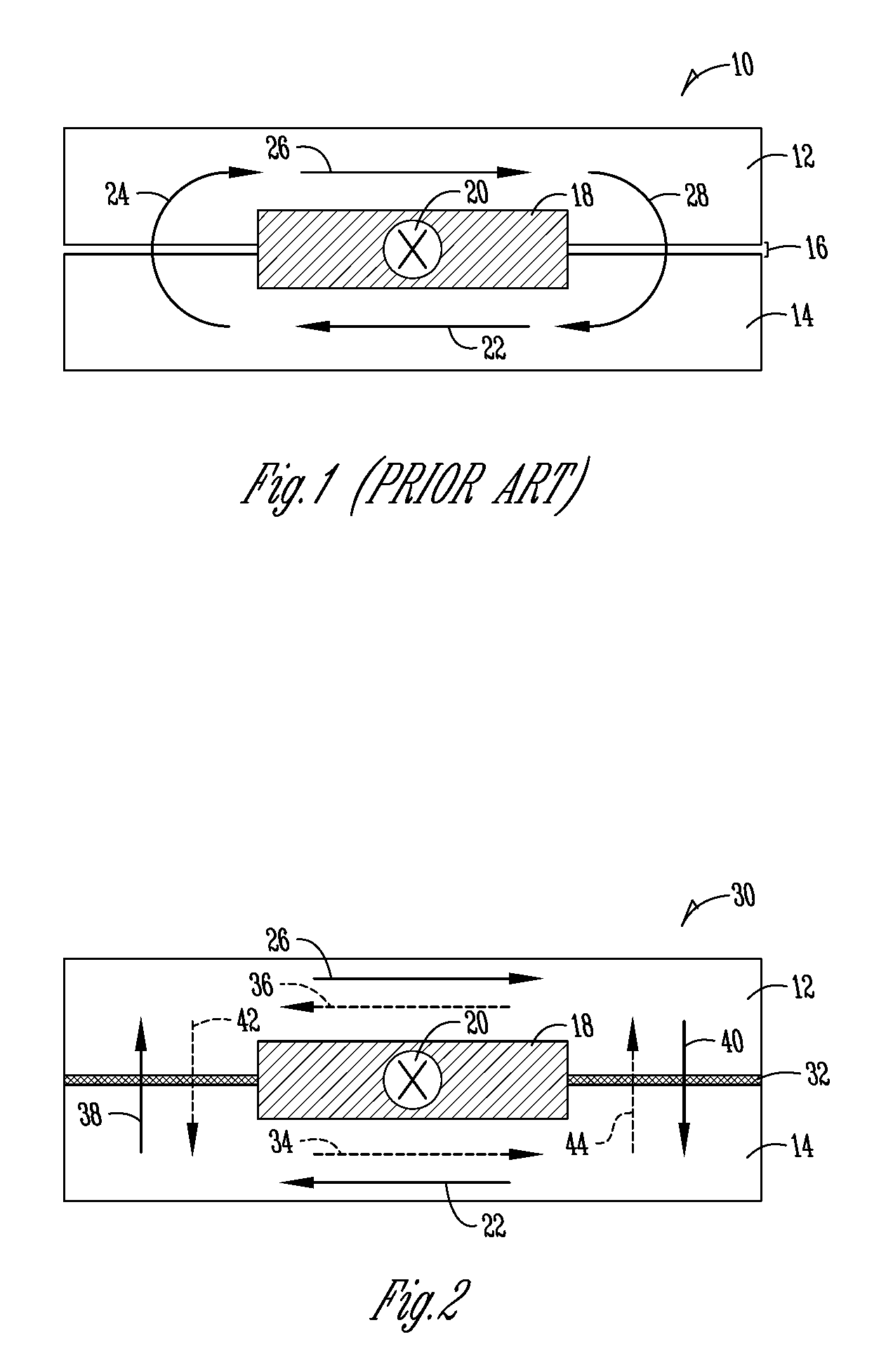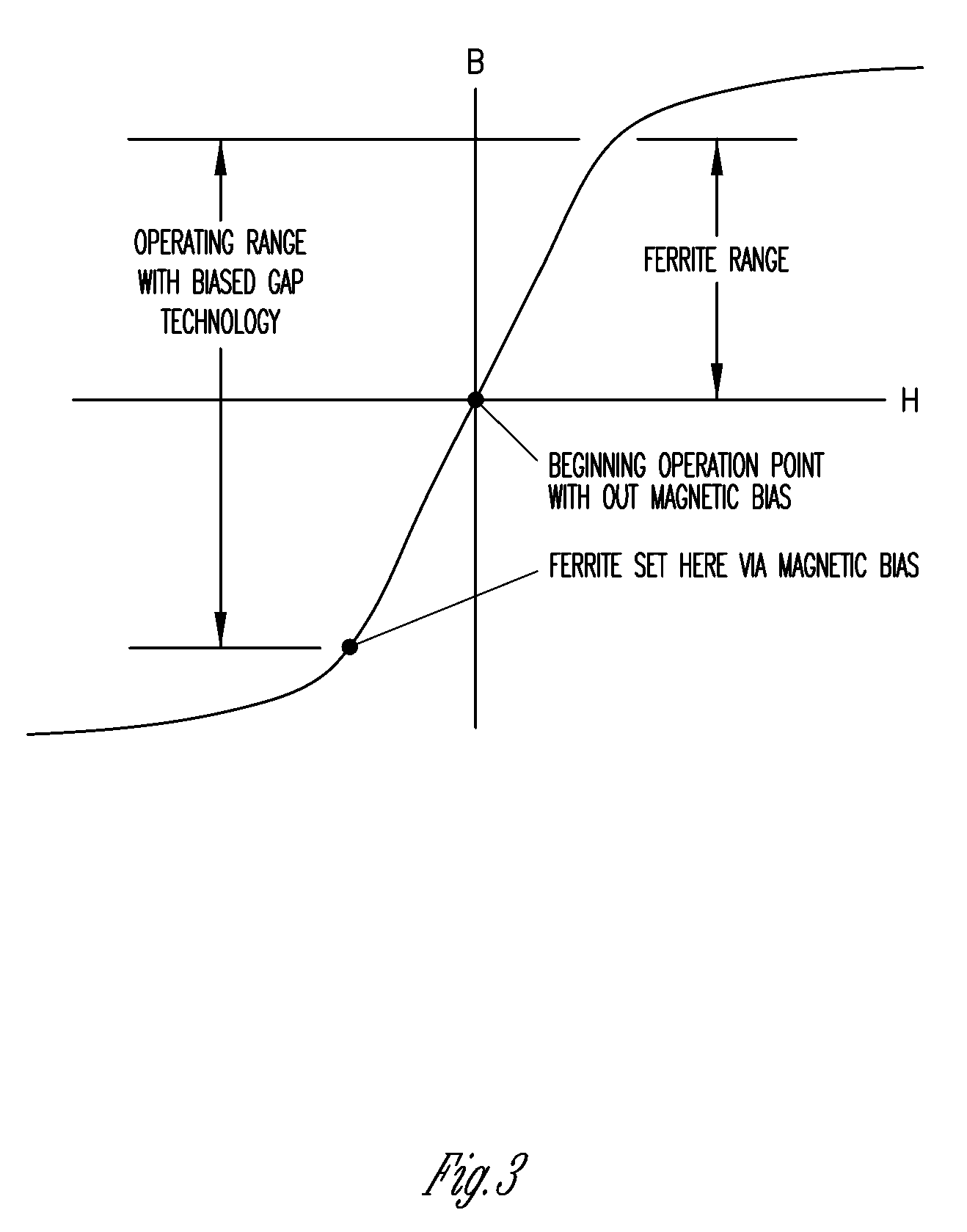High powered inductors using a magnetic bias
a high-power inductors and magnetic bias technology, applied in the direction of magnets, magnetic bodies, cores/yokes, etc., can solve the problems of limiting the production of high core losses at high frequencies, the inherent limitation of magnetic saturation at relatively low current levels, etc., to achieve high saturation current performance, reduce core losses, and adjust inductance characteristics
- Summary
- Abstract
- Description
- Claims
- Application Information
AI Technical Summary
Benefits of technology
Problems solved by technology
Method used
Image
Examples
Embodiment Construction
[0017]FIG. 1 illustrates a prior art device where a single strip of copper can be placed between two ferrite parts to create an inductor. While this is effective in creating low value, high frequency inductors, it limits the amount of input current the inductor can handle without saturating. The primary cause of saturation comes from the fact that all magnetic flux induced by the copper flows through narrow cross-sectional areas. FIG. 1 illustrates the flux pattern in a single copper strip inductor. In FIG. 1, an inductor 10 has a first ferromagnetic plate 12 and a second ferromagnetic plate 14. There is a spacing 16 between the first ferromagnetic plate 12 and the second ferromagnetic plate 14. The magnetic flux induced by a current through the single strip copper conductor 18 is split between each plate 12, 14. Input current 20 is shown using notation to indicate that the current is flowing into the page. Arrows 22, 24, 26, 28 indicate the direction of magnetic flux induced by the...
PUM
| Property | Measurement | Unit |
|---|---|---|
| thickness | aaaaa | aaaaa |
| thickness | aaaaa | aaaaa |
| frequencies | aaaaa | aaaaa |
Abstract
Description
Claims
Application Information
 Login to View More
Login to View More - R&D
- Intellectual Property
- Life Sciences
- Materials
- Tech Scout
- Unparalleled Data Quality
- Higher Quality Content
- 60% Fewer Hallucinations
Browse by: Latest US Patents, China's latest patents, Technical Efficacy Thesaurus, Application Domain, Technology Topic, Popular Technical Reports.
© 2025 PatSnap. All rights reserved.Legal|Privacy policy|Modern Slavery Act Transparency Statement|Sitemap|About US| Contact US: help@patsnap.com



